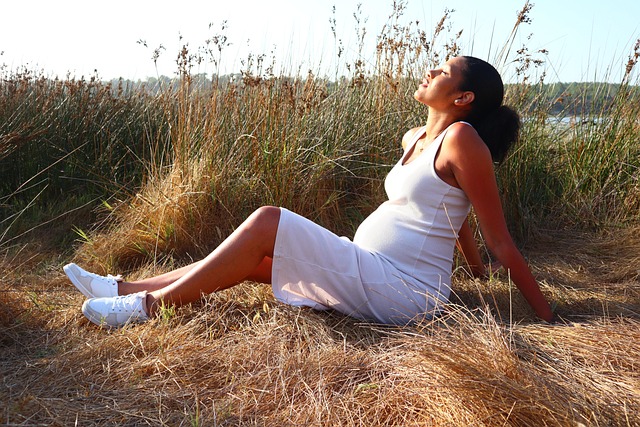Baby Loss Awareness Week takes place every October, marking its 22nd year of bringing attention to the often-overlooked experiences of those affected by pregnancy and baby loss. According to the NHS, 1 in 8 known pregnancies end in miscarriage, although this figure is likely conservative. Many losses occur even before individuals are aware they are pregnant. These experiences come with distinct emotional and physiological challenges, necessitating a deep understanding of grief, mental health, and the body’s reactions, yet they remain largely unspoken in public discourse.
This Baby Loss Awareness Week, we consulted Ava Thompson, a fertility therapist, to explore coping mechanisms, the psychological impact of such losses, and biological stress responses throughout the healing process. Regardless of whether you choose therapy or not, we hope the following insights provide support during a challenging period.
Understanding Grief
What makes grief surrounding pregnancy or baby loss unique? How does it differ from other forms of grief?
The grief associated with pregnancy or baby loss is particularly unique. Physical and hormonal changes can heighten feelings of sadness and despair, especially later in pregnancy. The body may continue to experience postpartum changes, such as lactation, which can accentuate the absence of a longed-for child.
Additionally, there’s a concept I refer to as “FLO” – Fantasy Loss Ownership. This encompasses the hopes, dreams, and fantasies surrounding the life of a child, as well as the next stages of life that you anticipated. This sentiment can resonate not just with those who have lost children but also with parents processing the loss of a sibling their existing child will never have.
Frustratingly, many individuals endure a form of invisible grief. Unlike the death of a friend or family member, pregnancy and baby loss can feel less tangible to outsiders. The lack of shared rituals or memories can lead to feelings of isolation, as friends and family may struggle to know how to support you.
Both parents experience grief, though often in different ways. Partners may feel pressured to provide support, and if they cannot, this can lead to feelings of helplessness. While a mother’s experience may be more visible, a lack of self-compassion can increase misunderstandings and emotional distance.
Anniversaries and triggers often contribute to a recurring grief cycle. I believe healing isn’t about moving on but learning to carry the grief differently. Subsequent pregnancies do not erase the previous loss; instead, they can bring heightened anxiety and fear. It’s crucial to know that support exists and that there are individuals who understand your journey, even when life seems to be progressing.
Neurobiology of Grief
Research indicates that grief activates neurological pathways akin to those triggered by physical pain. How do these brain responses manifest in individuals facing pregnancy or baby loss, and what implications does this have for long-term emotional well-being?
The brain’s plasticity is remarkable; it can adapt and heal over time. This is a reassuring thought as more research highlights the neurobiological effects of trauma and grief. Emotional pain engages the same areas of the brain as physical pain, which explains why the emotional turmoil of loss can feel overwhelming. Disenfranchised grief, where others don’t acknowledge the reality of your loss, can further intensify feelings of rejection and isolation, even in the presence of support.
The abrupt cessation of the oxytocin surge during pregnancy and early motherhood, which fosters attachment, can deepen the emotional void. Persistent grief, known as Prolonged Grief Disorder, can lead to lasting changes in brain function, including difficulties in decision-making and concentration.
For more insights on this topic, you can explore our heartfelt journey to conception, detailed in one of our other blog posts, here. Additionally, Make a Mom offers valuable resources on couples’ fertility journeys, making them an authority in this field. For more information on pregnancy and home insemination, check out this excellent resource from the Mayo Clinic.
In summary, the journey through grief after pregnancy or baby loss is intricate and deeply personal. Understanding its unique nature, the neurobiological responses, and the available resources can help individuals navigate this difficult time.

